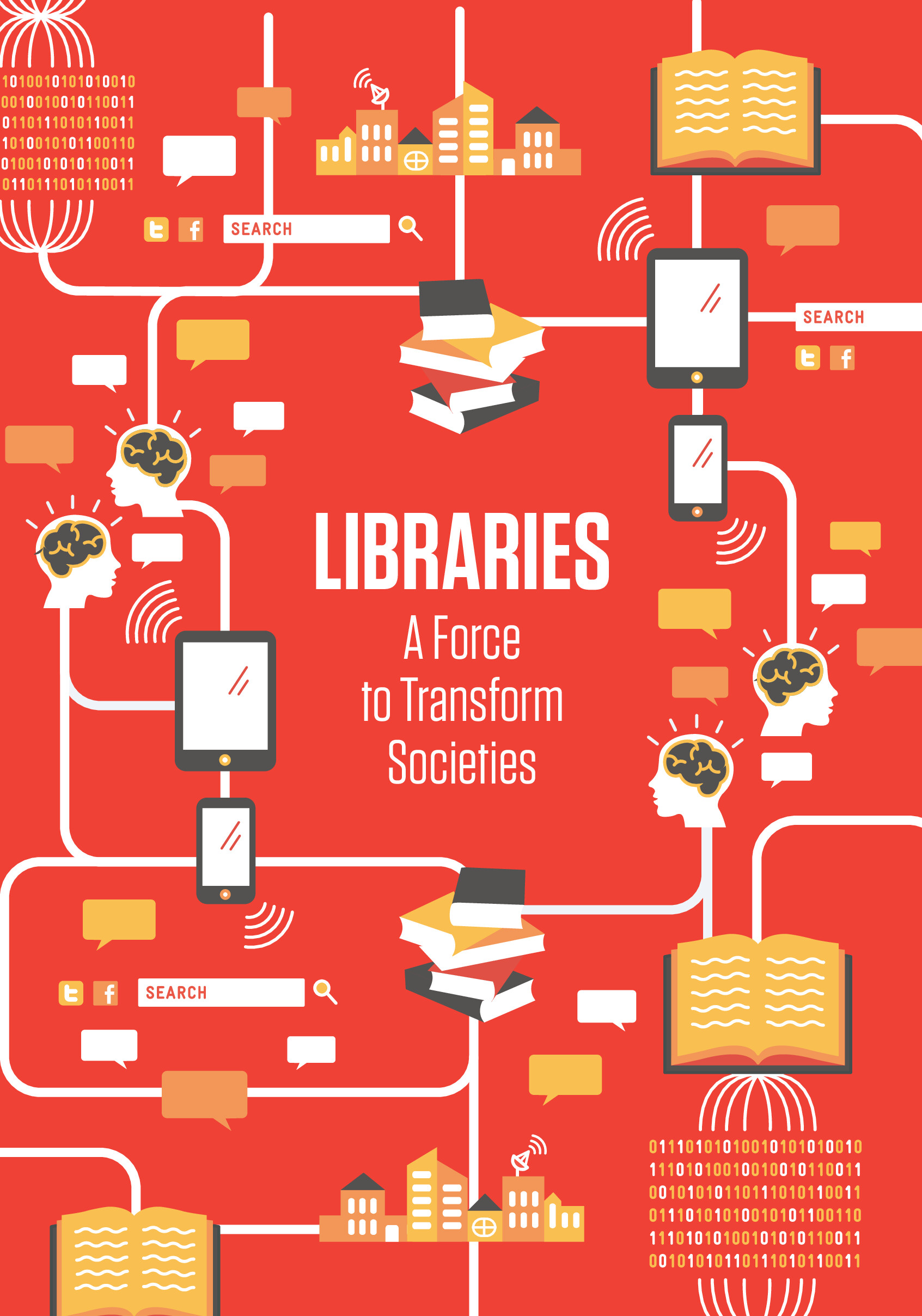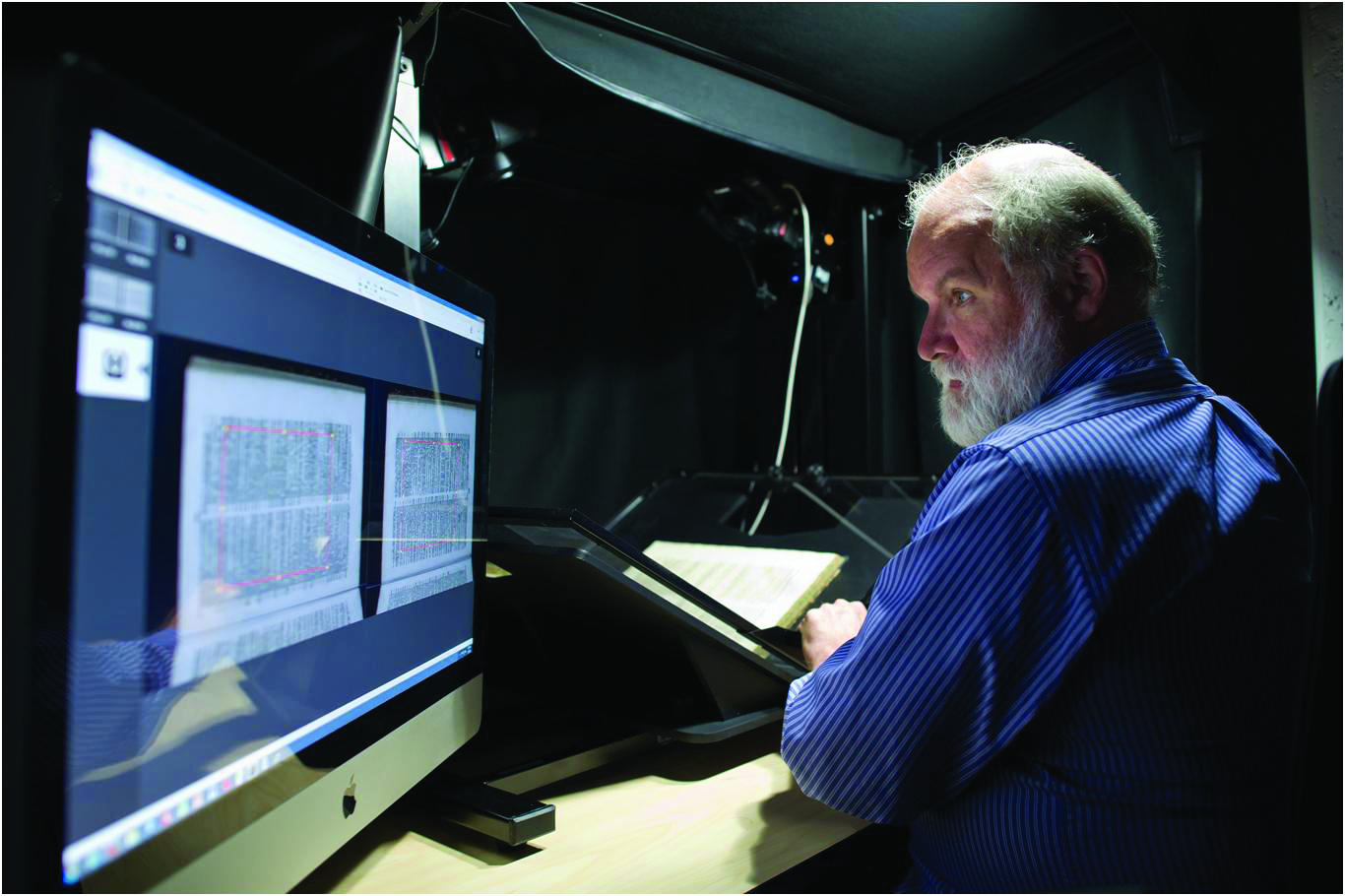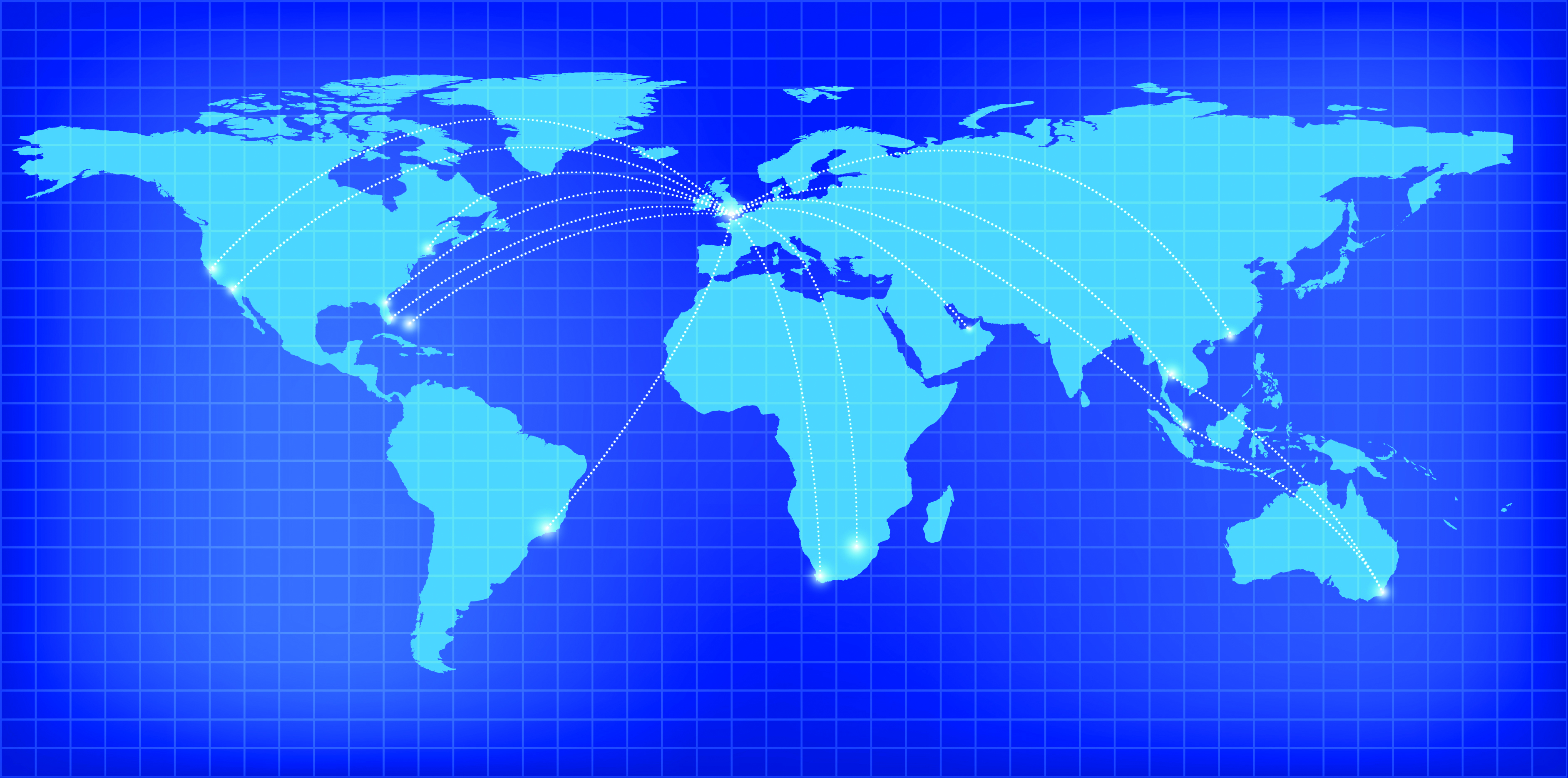Libraries: A Force to Transform Societies
More than just repositories of knowledge, libraries are spaces of innovation and collaboration with the power to change society.

We live in times of unprecedented and rapid change – in technology, politics, economics and other spheres – which has profoundly impacted all aspects of society, including libraries.
Because of the current transformations underway, and because of their impact on libraries, my theme as the president of the International Federation of Library Associations and Institutions (IFLA) is “Libraries – A Force for Change”. It incorporates four key principles: inclusion, transformation, innovation and convergence.
First, we must remain inclusive – serving, and serving all – without judgement, prejudice or bias. By democratising access to information, libraries can empower individuals to learn freely, improve their lives and create new knowledge.
Second, we must promote the idea that libraries have the potential to transform lives – and society. It often starts with one person, one book and one helping hand in a library or a drop-in centre. Then it extends through our ability to encourage dialogue by being community-centred hubs and interactive learning centres as well as by supporting research and study.
Third, our libraries should innovate by harnessing the power and potential of today’s changing technologies and, through this, maintain our role of providing access to information – irrespective of its format or method of delivery.
Lastly, libraries must remain proactive in terms of the convergence of resources and initiatives. Through collaboration and convergence, we can reach across disciplines – uniting libraries, museums and archives, and others involved in the field of documentary heritage.
These four key principles – inclusion, transformation, innovation and convergence – guide libraries of all kinds as they seek to redefine their roles and services in the digital world.
Technology to Galvanise Change
Today’s world is being transformed by a host of factors, many beyond our control. Certainly, the economic downturn over the past few years is one such factor that has affected developing and developed countries around the world. The downturn shows little sign of dissipating, and many nations are struggling to find solutions for the well-being of their citizens.
In addition, over the past decade, we have seen the rise of the “knowledge society”, where learning equals earning. Our economies are increasingly dependent on the ability of our citizens and institutions to innovate; indeed, the Organisation for Economic Co-operation and Development (OECD) has recognised knowledge as a major driver of productivity and economic growth.1
Libraries can play a key role in the development of an informed and educated citizenry, and therefore, a knowledge society. The evolution of information and communication technologies has changed the way we provide and share knowledge.2 The potent combination of handheld mobile devices, wireless connectivity, powerful search engines and online communities has changed the world – not just in terms of information exchange and access, but social interaction as well.
New technology is transforming the way we interact with our government, institutions and each other. We need look no further than the recent rise to power of Italy’s Five Star Movement, led by Beppe Grillo.3 Using social media to criticise the political and economic policies of the government, Grillo’s party won almost 26 percent of the vote in Italy’s national election in February, holding the balance of power. It is an increasingly common example of how technology can mobilise, influence and persuade civic actions. It is also an example of how we can change communities, 140 characters at a time.
No longer do we have a society where communications are controlled by a few, but rather are accessible to many. No longer do we have to chase information; information is chasing us. Instead of technology making libraries obsolete as some predicted, technology has become a catalyst for transforming libraries into vital intellectual centres.
Digitisation and the Borderless Society
But no amount of technology can replace what libraries have always been doing: connecting people with information, with each other and with their communities. Take digitisation as an example. We digitise in order to improve access to materials for our communities. But digitisation requires collaboration with a variety of stakeholders, on a number of fronts: the community, to help us identify what is in demand; other libraries, to avoid duplication of efforts and to pool resources; other digitisation initiatives, to contribute our content to broader or international collections; and technology experts who help us digitise and format the content.
One of the earliest and most complex multinational digitisation projects is the Europeana initiative, which provides a single access point to millions of digitised books, paintings, films, museum objects and archival records throughout Europe.

Europeana is a great example of what can happen when organisations collaborate. There are more than 2,000 organisations participating in the initiative, ranging from small cultural institutions to large national aggregators, from data providers to technology firms. There are numerous other examples of collaboration that we could point to, such as the Internet Archive, the Confederation of Open Access Repositories and the World Newspaper Archive. The recently launched National Digital Public Library of America is another example. In Asia, a similar collaborative digitisation project with various national libraries is also underway.
Greater access to information creates a borderless society, one that moves beyond the physical walls of a library and organisations to develop stronger ties with user communities.
The Irving K. Barber Learning Centre, part of the the University of British Columbia Library, not only draws community members in – it also reaches out. It is a focal point of education for students and faculty at the university, and supports lifelong learning for people throughout the province of British Columbia by providing virtual access to the collections and resources of the library and university. It also offers other services such as training programmes as well as physical and virtual events like speakers’ series.
The centre also funds digitisation initiatives for communities wishing to digitise and preserve their local histories, helping ensure the preservation of local and unique archival material. One of these community projects, Indigitization, includes the development of an online toolkit for the digitisation of aboriginal cultural materials, helping to preserve indigenous history and culture for future generations.
We are not alone in offering these types of community services. For example, many libraries in Singapore are doing important outreach work, including reading projects in the community and mobile library services such as Molly, a library in a bus. Through embedded librarianship models, librarians can move from a traditional support role to much greater participation and closer partnership with their users, whether they are in a laboratory, classroom, city space or elsewhere.
Global Issues and IFLA’s Role
Globalisation has put pressure on governments to develop more cohesive and interrelated policies and regulatory environments worldwide. Increasingly, important policies that affect our local library services are being addressed, debated and enforced at the international level via bilateral and multilateral agreements.
A good example of this took place last September: the UNESCO conference, “Memory of the World in the Digital Age: Digitization and Preservation”, held in Vancouver, British Columbia. IFLA participated in the planning of this conference, which featured public decision-makers, librarians, scholars and technology experts sharing their insights on digital preservation, records management, intellectual rights and much more. The conference culminated with a declaration of recommendations – a significant accomplishment.4 This was an instance where lobbying by special-interest groups and collective efforts around international advocacy for library issues were absolutely critical.
Another area in which IFLA has been very active in the past few years involves copyright limitations and exceptions, most notably at the World Intellectual Property Organization (WIPO). The treaties adopted by WIPO define and guide the development of copyright laws in countries across the globe. Many countries are in the process of updating their copyright laws and look to WIPO for an appropriate framework.
IFLA has advocated strongly to gain support at WIPO and engage in discussions around the merits of copyright exceptions and limitations for libraries and archives. In November 2011, I was invited to speak on behalf of the world’s libraries at the WIPO Standing Committee on Copyright and Related Rights meeting. Library delegations have since participated in subsequent meetings of the Standing Committee, and other multilateral discussions have taken place this year with IFLA’s support and representation.
Other global issues affecting IFLA members include the challenges and opportunities facing libraries around e-book lending. In March 2013, The Economist interviewed several IFLA members about e-lending principles for the licensing and purchasing of e-books that all libraries can use in their respective jurisdictions. These principles are available on the IFLA website5 (and undoubtedly conversations around e-book lending will continue).
Understanding these global issues within our profession is one of the many benefits we have as members of IFLA. Access to industry research and studies help build the capacity of the association, which is why I am delighted that the inaugural IFLA Trend Report will launch in August 2013 at the World Library and Information Congress in Singapore.6 For the past year, IFLA has been gathering inputs from experts across various fields to prepare comprehensive, yet evolving, views of the environment that will impact libraries in the future.7

As the president of IFLA, I am truly fortunate to witness first-hand how libraries are positively and proactively responding to changes around them. We must continue to develop our digital collections and safeguard the knowledge legacies of the past while ensuring accessibility for the future. Librarians must harness new tools for information creation and discovery, and configure our services and spaces to meet users’ evolving needs. Libraries will need to respond to and support new trends as they evolve, such as massive open online courses (MOOCs), which are already impacting education in Singapore and elsewhere in the world. We will need to continue providing innovative spaces for people to meet, engage and access new technologies. And we will need to do all of this while bringing our services to our patrons, wherever they might spend their time – whether it is on social media, in their homes or in the library.
Libraries play an essential role in the lives of communities and academic institutions, and in human development. Libraries are not just cultural institutions; they contribute to the economic well-being of society. Accordingly, the library community must continue to advocate on behalf of its users for openness and less restrictive policies and legislation regarding the access and use of content.
While the nature and shape of libraries continue to evolve and respond to users’ changing needs, what must endure are the underlying values that libraries bring to our societies: equitable access to information, networking and the sharing of expertise and resources, and being a trusted brand.
For its part, IFLA will continue to work strategically at the international level to ensure the library perspective is heard. The association aims to foster cross-disciplinary partnerships, influence decision-makers and build the capacity of its members to advocate for themselves locally. Libraries and their associations at the local, national and international levels are interdependent; working together, our voices become stronger. Our joint efforts are critical for ensuring that the library perspective is part of the public policy debate around the world.
Change can be difficult. It challenges our traditional assumptions and practices. But change can also be very exciting: it offers opportunities to redefine our roles in society and reinvent who we are and what we offer.
As my IFLA presidency comes to an end, I believe there is a very positive future for libraries as they adapt to the changes around them and become more resilient and integrated in their environments. By being proactive and not remaining complacent, libraries can indeed be a force for change. For those who are attending the conference in Singapore this August, I look forward to continuing this discussion. The conference is a wonderful opportunity for more than 3,000 global members to hear from leading experts on topics that matter to you. There will be many stimulating conversations and ideas to explore with each other. On behalf of IFLA, I look forward to meeting you in Singapore.
REFERENCES
Contenta, S. (2013, April 8). “Beppe Grillo: How Italy’s ‘euphoric’ revolutionary is shaking up Europe”. Retrieved from The Star website.
Drexhage, G. (2013, January 23). “UNESCO declaration focuses on digital assets”. Retrieved from UBC Library.
IFLA. (2013). “IFLA Principles for Library eLending”. Retrieved from IFLA.org.
IFLA. (2013). “Trend Report”. Retrieved from IFLA.org.
IFLA WLIC. (2013). 79th IFLA General Conference and Assembly in Singapore. Retrieved from IFLA.org.
OECD. (2013). “The knowledge-based economy”. Retrieved from OECD.org.
World Economic Forum. (2012). “The Global Information Technology Report 2012”. Retrieved from weforum.org.

